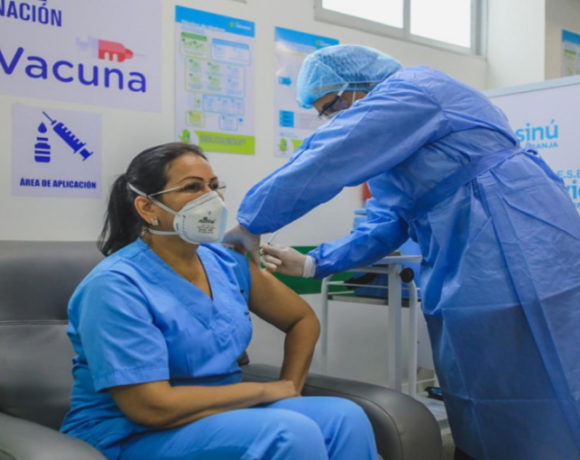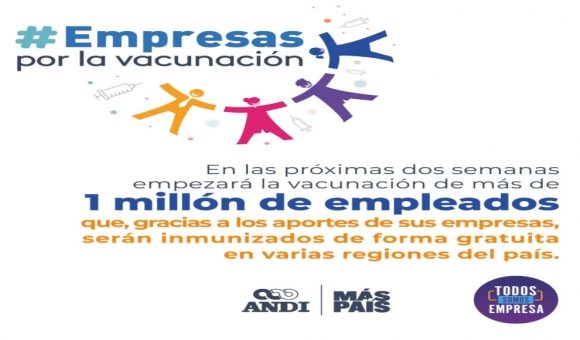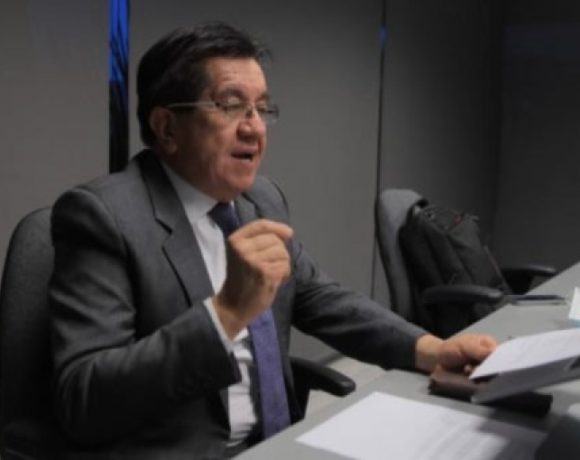12,210 More Companies, 201,000 More People Back to Work May 11; Medellin Leads All Colombia in ‘Smart’ Covid-19 Controls

The Medellin Mayor’s Office announced May 10 that starting tomorrow (Monday, May 11), 201,461 more people will return to work here at 12,210 companies newly meeting Health Ministry Covid-19 prevention protocols as well as registration in the high-tech “Medellin Me Cuida” program.
Prior to May 11, Medellin and its neighbors in Valle de Aburrá already had 52,852 companies registered in “Medellin Me Cuida” — and also approved as meeting biosafety protocols.
“Our purpose from the Mayor’s Office of Medellín is to guarantee that all these companies can operate without neglecting the health and well-being of all our inhabitants,” said Medellin Secretary of Economic Development Paola Vargas González.
Qualifying companies and their employees “must register their data on the Medellín Me Cuida platform. Employers must attach the biosecurity protocol, which will be reviewed to verify that the requirements that guarantee the health and well-being of workers are met,” according to the Mayor’s Office.
The computerized “Medellin Me Cuida” program feature big-data analysis, including a “technical table for economic impact measurement,” which now indicates an “urgent need to encourage staggered [work-hours] scheduling strategies in companies in order to avoid crowds in public transport and common places,” according to the Mayor’s Office.
“We are going to work hand-in-hand with the public sector but also with companies and transporters to ensure that employers have all the necessary requirements to protect the employee, that they can be transported safely, and that they can travel to their office if it is strictly necessary,” Secretary Vargas added.
Medellin Leads All Colombia in ‘Smart’ Covid-19 Response, Controls
While Bogota, Cali and other cities poorly struggle to cope with Covid-19, Medellin once again leads all Colombia in “smart” technology and “smart” public policy – with exceptionally low rates of Coronavirus infections combined with relatively successful, well-organized, gradual economic reopenings — without political demagoguery.
As of May 9, Colombia’s Health Ministry had recorded 10,495 Coronavirus cases nationally, with 445 deaths and 2,569 recoveries. Bogota has nearly 40% of all cases (4,028) followed by Cali/Valle del Cauca (1,320) and then Medellin/Antioquia (466 cases, including six deaths, 335 recoveries and a 77% recovery rate so far).
In a May 8 report from Bogota daily newspaper El Tiempo, Medellin Mayor Daniel Quintero and other local experts explain why Medellin has had such unusual success in Covid-19 control.
One key to success is sophisticated “big data” analysis of the 2.2 million individuals and 800,000 families registered in the “Medellin Me Cuida” database, which among things enables tracking of people to-and-from the tens of thousands of workplaces included in the computer program.
The report quoted Dr. Carlos Agudelo – infectious disease specialist at the Clínica Universitaria Pontificia Bolivariana here – as saying that Medellin not only moved relatively quickly to enforce quarantine at an early stage, but also aggressively tracks and studies every outbreak of contagion, especially originating at sites of notable crowding.
Thanks to this program, people infected were interviewed promptly to see what other contacts they had recently, which enabled early testing and isolation of more potential spreaders of disease.
Statistically, Medellin’s “smart” response to these early infections was nearly four times greater than in Bogota and more than three times greater than the national average, Agudelo explained.
Mayor Quintero added in the same report that “through epidemiological fencing exercises, we have managed to keep this [infection growth rate] curve low.”
For example: The “Medellin Me Cuida” database enables local health officials to “pick up the phone and call a person who is over 70 and who has hypertension and lives with someone who is working in a department store. With that information, when there is a [Covid-19] case we can test not only a first circle of related people, but up to five circles around, and even a block, to try to find positive cases,” Quintero was quoted as saying.
“From the first infection [detection], we began to practice examinations at home, instead of telling people to go to clinics. Then we start continuous monitoring, with daily calls.
“This helps us not only to know if the person is well, but if, in fact, he is at home. We call him and ask him to pass the phone to his mother, his brother, and [if] they did not pass [the phone to] someone, we immediately made an inspection visit. This includes in some cases putting plainclothes police outside the houses,” he added.
















